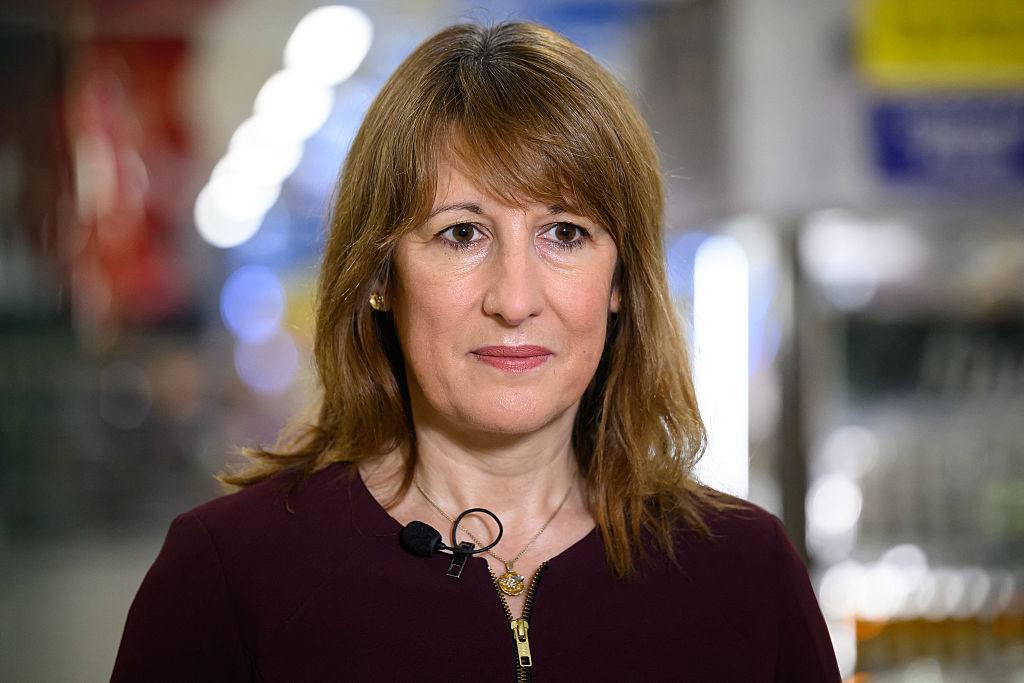Where to put your savings now that NS&I has cut its rates
National Savings & Investments (NS&I) has slashed its interest rates. There are now much better deals for your savings elsewhere, says Ruth Jackson Kirby.


Get the latest financial news, insights and expert analysis from our award-winning MoneyWeek team, to help you understand what really matters when it comes to your finances.
You are now subscribed
Your newsletter sign-up was successful
Want to add more newsletters?

Twice daily
MoneyWeek
Get the latest financial news, insights and expert analysis from our award-winning MoneyWeek team, to help you understand what really matters when it comes to your finances.

Four times a week
Look After My Bills
Sign up to our free money-saving newsletter, filled with the latest news and expert advice to help you find the best tips and deals for managing your bills. Start saving today!
There is rarely good news for savers these days, but one beacon of light in 2020 has been National Savings & Investments (NS&I). The Treasury-backed savings bank has offered market-beating interest rates for months. But no longer. NS&I is cutting its rates on several accounts as well as significantly lengthening the odds of winning the monthly prize draw with Premium Bonds. It claims it “had no choice but to act because savers had put away billions more during... lockdown, which left it in danger of breaching its government-mandated funding limit for the year”, says David Byers in The Times.
In July alone savers deposited £9bn, nine times the normal level. Because it is backed by the Treasury, NS&I is not allowed to get too competitive; the government sets a limit on how much money it can accept each year. That limit – known as its net financing target – is £35bn. It is believed to have brought in £23bn already this year.
So the axe has come out to make accounts less attractive. “The savageness of the cuts will be devastating,” says Anna Bowes, co-founder of Savings Champion. “The competition we have seen in the savings market could swiftly end, as providers could be swamped with new money.”
MoneyWeek
Subscribe to MoneyWeek today and get your first six magazine issues absolutely FREE

Sign up to Money Morning
Don't miss the latest investment and personal finances news, market analysis, plus money-saving tips with our free twice-daily newsletter
Don't miss the latest investment and personal finances news, market analysis, plus money-saving tips with our free twice-daily newsletter
NS&I has slashed the rate on its Income Bonds from a market-leading 1.16% to just 0.01%. Its Direct Saver will drop from paying 1% to 0.15%. The Investment Account will pay 0.01%, down from 0.8%. Junior Isa (individual savings account) accounts will drop from 3.25% to just 1.5% and the Direct Isa interest rate falls from 0.9% to 0.1%. All these rate declines will occur on 23 November. To cap it all, Premium Bonds will become much less attractive. From the December draw the odds of a £1 Premium Bond number winning a prize will lengthen from 24,500-to-1 to 34,500-to-1. There will be a million fewer prizes handed out to holders.
So what should you do now? If you are going to move your money, act fast. Savers “may have only a few days left before smaller banks that generally offer the top rates trim them”, says Stefan Wagstyl in the Financial Times. Several of the best deals have already vanished. At the time of writing, the top easy-access accounts were Yorkshire Building Society’s Internet Saver Plus, which pays 0.95% on balances over £10,000, and Principality Building Society’s Web Saver, which pays 0.8% on all balances. However, if you are prepared to limit your access to your cash to only two withdrawals a year then Coventry Building Society’s Double Access Saver pays 1.10%, while Principality Building Society’s Online Limited Access pays 1.05% but allows three withdrawals.
Those who have unused individual savings account (Isa) allowances could look at Cynergy Bank’s Online Isa, which pays 1%. You can make as many withdrawals as you like, but it’s not a flexible Isa (ie, money paid in and withdrawn still counts against your Isa allowance). Coventry Building Society’s Triple Access Isa pays 0.96% and is flexible but only allows three withdrawals per year; Principality Building Society’s Web Isa pays 0.95%, is flexible and lets you withdraw as often as you like.
The best rate available is 1.6% with BLME’s Premier Deposit Account, but that is a five-year bond. You can get 1.36% for two years (and 1.26% for one year) on Gatehouse Bank’s Fixed Term Deposit.
Get the latest financial news, insights and expert analysis from our award-winning MoneyWeek team, to help you understand what really matters when it comes to your finances.

Ruth Jackson-Kirby is a freelance personal finance journalist with 17 years’ experience, writing about everything from savings accounts and credit cards to pensions, property and pet insurance.
-
 Average UK house price reaches £300,000 for first time, Halifax says
Average UK house price reaches £300,000 for first time, Halifax saysWhile the average house price has topped £300k, regional disparities still remain, Halifax finds.
-
 Barings Emerging Europe trust bounces back from Russia woes
Barings Emerging Europe trust bounces back from Russia woesBarings Emerging Europe trust has added the Middle East and Africa to its mandate, delivering a strong recovery, says Max King
-
 NS&I February Premium Bonds winners revealed – did you win £1 million?
NS&I February Premium Bonds winners revealed – did you win £1 million?More than 2.7 million historic Premium Bonds prizes are still waiting to be claimed, NS&I says
-
 ISA reforms will destroy the last relic of the Thatcher era
ISA reforms will destroy the last relic of the Thatcher eraOpinion With the ISA under attack, the Labour government has now started to destroy the last relic of the Thatcher era, returning the economy to the dysfunctional 1970s
-
 NS&I cuts interest rates on 8 savings accounts – are they still worth it?
NS&I cuts interest rates on 8 savings accounts – are they still worth it?NS&I will now offer less attractive interest rates for customers wishing to lock their savings away to grow for one, two, three or five years.
-
 Why UK stocks are set to boom
Why UK stocks are set to boomOpinion Despite Labour, there is scope for UK stocks to make more gains in the years ahead, says Max King
-
 Should ISA investors be forced to hold UK shares?
Should ISA investors be forced to hold UK shares?The UK government would like ISA investors to hold more UK stocks – but many of us are already overexposed
-
 Premium Bonds winners announced – did you scoop the September jackpot?
Premium Bonds winners announced – did you scoop the September jackpot?NS&I has announced the winners for September’s Premium Bonds prize draw, with two lucky savers becoming overnight millionaires. Did you win this month?
-
 NS&I announces August 2025 Premium Bonds winners – did you win £1 million jackpot?
NS&I announces August 2025 Premium Bonds winners – did you win £1 million jackpot?NS&I has released details about August 2025’s Premium Bonds jackpot winners. We look at who won a big prize this month
-
 How long does it take to win a Premium Bonds prize?
How long does it take to win a Premium Bonds prize?It could take much longer than you think to win something in the Premium Bonds prize draw